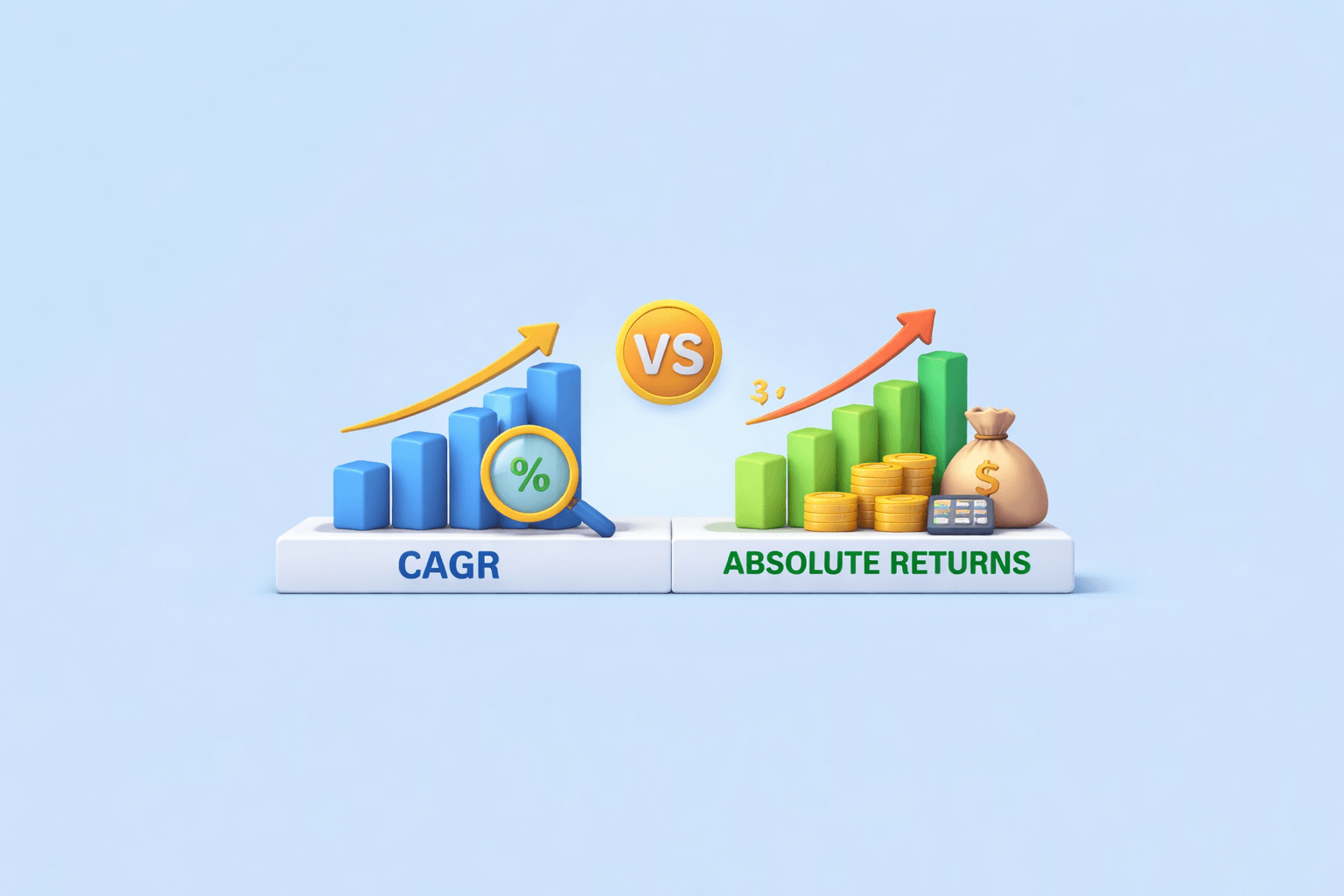- Home
- Blog
- Mutual Funds
- Mutual Fund Distributor Commission
- Mutual Fund Distributor Commission
Mutual Fund Distributor Commission

- Published Date: January 12, 2023
- Updated Date: December 31, 2025
- By Team Choice
Mutual fund distributors play a crucial role in connecting investors with suitable mutual fund schemes. These professionals possess in-depth knowledge of various fund houses and their offerings, enabling them to provide tailored investment advice. By understanding an investor's financial goals and risk appetite, they guide them through the complexities of the mutual fund market.
How Do Mutual Fund Distributors Earn Money?
The primary source for mutual fund distributors income is the commission they receive from asset management companies (AMCs). This commission is a percentage of the assets under management (AUM) of the mutual fund schemes they distribute. The commission rate can vary depending on factors such as the type of mutual fund (equity, debt, hybrid, or index), the AUM of the scheme, and the distributor's market share.
Key Factors Influencing Mutual Fund Commission Rates:
- Mutual Fund Type: Equity funds generally have higher commission rates compared to debt or hybrid funds.
- AUM: Larger AUMs often lead to lower commission rates as the overall expense ratio (TER) is spread across a larger asset base.
- Market Share: Distributors with a significant market share in a particular scheme may negotiate higher commission rates.
The Role of Distributors in Investor Success
Mutual fund distributors are not just salespeople; they serve as trusted advisors. By providing expert guidance, they help investors make informed decisions and stay on track toward their financial objectives. Their commission structure ensures that they have a vested interest in the success of their clients' investments.
MF Distributor Commission Structure
Unlike other professionals, mutual fund distributors do not gain a fixed income. The value of the mutual fund agent commission depends on three essential factors.
- The asset management company providing the commission
- The mutual fund scheme
- The city from which the distributor sources clients
Whether the scheme pertains to equity, debt or hybrid, a mutual fund agent can earn between 0.1 to 2 per cent behind every successful purchase of units.
The mutual fund distributor commission structure can be better understood by using a formula that is applied at the time of deciding the commission value. Every mutual fund house treats distributor commission as part of its expense ratio, calculated collectively with similar expenses like marketing and accounting.
The fund house factors in the total assets under management (AUM) annually, which comprises lump-sum investments and the total SIPs for the year. Based on the value of AUM, the distributor or agent is provided with a monthly commission.
Become a Mutual Fund Distributor
- High Commission
- Multiple Sources of Earning
- Lifetime Income Source
- Zero Deposit
Understanding The Types of Distributor Commission
The mutual fund distributor's salary varies according to several factors. Hence, they can be classified as:
Commissions Are of Two Primary Types:
1. Trail commission
2. Upfront commission.
Mutual Fund Trail Commission
The primary aim of a trail commission is to reward mutual fund distributors for sourcing clients outside the top thirty cities, as defined by the Associations of Mutual Funds in India (AMFI).
Trail commission operates on two categories -
- T-30 cities: These include the top 30 cities in India regarding investors associated with the mutual fund market. Popular metropolitan areas like Mumbai, Kolkata, Bengaluru, Pune, and Chennai fall into this category.
- B-30 cities: Outside the top 30 cities, below 30 cities are usually synonymous with a scarcity of investors. Hence, mutual fund houses constantly search for users from these cities to diversify their client portfolios.
The demand for the latter is also reflected in the pay structure of mutual fund distributors.
Onboarding clients from T-30 cities grants them a pre-determined or specified commission without additional bonuses. This commission is also proactive in revising the value of the commission every quarter.
On the other hand, attracting clients from B-30 cities earns them Master B-30 incentive commissions, where they acquire extra incentives on every investment made during the first year in conjunction with the regular commission.
Upfront Commission in Mutual Fund
Unlike trail commissions, upfront commissions do not account for the total AUM. However, mutual fund houses award special commissions (upfront) to distributors who convince the investors to invest in daily SIPs in various mutual fund schemes.
Top 30 Cities Commission in Mutual Funds
The commission in the top 30 cities is subject to a standard commission rate, devoid of any additional benefits or bonuses for the distributor. The primary reason is the number of organic investors that arise from these cities. Moreover, the top 30 cities make up the largest share of mutual fund market investors.
Hence, the mutual fund distributors earn a commission ranging from 0.1% to 2% depending on the fund house and the type of funds.
The expense ratio differs based on the type of mutual fund, the asset management company (AMC), and factors such as the distribution channel through which customers are acquired.
Below 30 Cities Commission in Mutual Funds
Along with a commission rate between 0.1% to 2%, distributors who acquire clients from low-investor regions can earn special commissions on each investment made by these users. The mutual fund commission structure is deliberately skewed in favour of below 30 cities to attract traffic from these areas and increase the number of investors.
As of 2023, AMFI reported that B-30 cities only contributed 17% of the total assets in the mutual funds market.
How to Calculate Mutual Fund Distributor Commission
Calculating the mutual fund commission is crucial for distributors to track their income. A mutual fund commission calculator helps to estimate the commission on both SIP and lump-sum investments. The calculation is based on the NAV and the total number of units held by the investor.
Here’s an example using a mutual fund agent commission calculator:
- If an investor buys 1,000 units of a mutual fund at ₹10 per unit, the total investment would be ₹10,000.
- If the mutual fund agent commission is 1.5%, the calculation would be based on the AUM, and commissions are earned as long as the investment is held.
SIP calculators are similarly used to compute earnings from periodic SIP contributions. Sip agent commissions are calculated based on both the amount invested and the duration of the SIP.
How To Become A Mutual Fund Distributor?
The path to become mutual fund distributor comprises a formal procedure, which starts with a standardised examination and ends with registering with a mutual fund house. The steps are as follows.
- National Institute of Securities Market (NISM) Exam:
It is an official certification test to be qualified for operating as a mutual fund distributor. You can log on to the official website of NISM, fill out the form and pay a registration fee of ₹1500. The website also comprises the study material and the basic gist of questions expected in the examination. - Await the results:
After appearing for the examination, you should receive the NISM certification, provided you secure the passing scores. You can acquire a hard copy of this certificate 30 days after the announcement of the results. Once you gain the certification, you must renew it every three years. - Register with the AMFI:
Using the NISM certifications, you can be an AMFI-registered Mutual fund distributor and secure a unique AMFI registration number. The entire process mandates certain documents like your PAN card and identity details. This number grants you the authority to sell mutual funds or act as an official advisor for budding market investors. The entire process is a part of 'Know your Distributor' to assess the applicant. - Collaborate and register with a certified mutual fund distributor: Since you are officially certified as a mutual fund distributor, advisor and agent, it is time to reach out to several mutual fund houses to help them secure clients and earn commissions on each investment.
5 Tips to Boost Your Mutual Fund Distributor Earnings
- Expand Your Product Offerings: Consider cross-selling complementary financial products like insurance, fixed deposits, or retirement plans to increase revenue streams.
- Engage in Active Marketing: Utilize digital marketing, social media, and networking events to reach potential clients and educate them about the benefits of mutual fund investing.
- Nurture Existing Relationships: Foster strong relationships with existing clients by providing personalized advice, regular updates, and encouraging them to increase their investments as their financial goals evolve.
- Promote Long-Term Investing: Emphasize the importance of staying invested for the long term to achieve financial objectives. Educate clients about the benefits of compound interest and the potential risks of short-term trading.
- Leverage Referrals: Encourage satisfied clients to refer you to their friends and family. Offer incentives or rewards for successful referrals to further boost your client base.
Summing Up
The role of a mutual fund distributor is flexible in terms of hours worked and commission earned. Think of it as an entrepreneurial role where you are in control of your decisions and possess the ability to increase profits by reaching out to more clients.
However, the role comes with its share of requirements. For one, you must be constantly updated on new developments with affiliated mutual fund houses and familiarise yourself with their schemes. Additionally, staying abreast of market movements is advisable to provide proper advice regarding investments in equity, debts or hybrid funds. So, apply for your mutual fund distributor certification and partner up with a reputed firm like Choice India for a long and mutually beneficial partnership!
FAQ
SIP Commission
A SIP (Systematic Investment Plan) commission is a fee associated with regularly investing a fixed amount in a mutual fund through a systematic investment plan.
SIP commission structure can differ from 0.1 per cent to 2 per cent.
How to Calculate Mutual Fund Distributor Commissions?
The commission earned by a mutual fund distributor is typically calculated as a percentage of the assets under management (AUM). Here's a breakdown of the formula used for calculating trail commissions:
Commission = (Number of Units * NAV * Commission Percentage * Days Invested) / 365)
Where:
- Number of Units: The total number of mutual fund units held by the investor.
- NAV: The net asset value of the mutual fund units on a specific date.
- Commission Percentage: The percentage rate set by the asset management company (AMC).
- Days Invested: The number of days the investor has held the units during the month.
Trail Commission Calculated For Mutual Fund Distributors?
Trail commission is determined by multiplying the number of units, NAV, commission rate, and the days invested during the month, then dividing the total by 365 (or 366 in leap years).
When do Mutual Fund Distributors receive their commissions?
Most asset management companies (AMCs) distribute commissions every month, while brokerage structures are revised every quarter. Commissions are calculated daily, based on the fluctuations in the daily NAV of mutual fund schemes.
Factors Influencing the Commission Earned by a Mutual Fund Distributor
The commission is determined by the distributor's total assets under management (AUM), along with factors such as new investments, redemptions, and fluctuations in market value (mark to market).
How Mutual Fund Distributors Increase Their Commission Earnings
Distributors can increase earnings by cross-selling financial products, running awareness campaigns, encouraging larger investments from current clients, promoting long-term investments, and asking for client referrals.
Recommended for you

CAGR Vs Absolute Returns in Mutual Funds: Key Differences You Should Know

FII DII Data - Live Data

Share Market Prediction For Tomorrow
